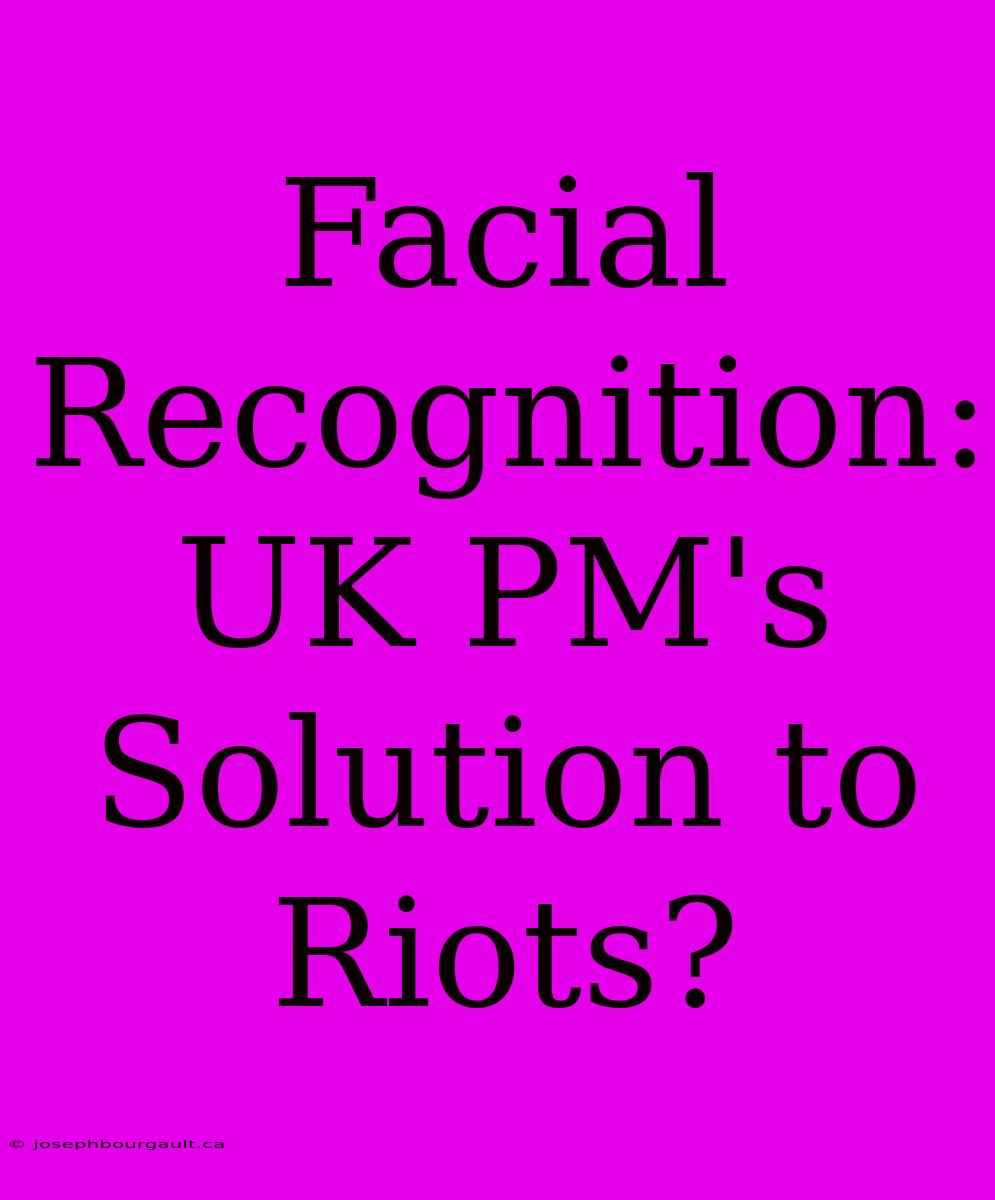Facial Recognition: The UK's Controversial Solution to Riots?
The UK government's recent proposal to utilize facial recognition technology as a tool to prevent and deter riots has sparked a fierce debate. While the government argues that this technology can be a powerful tool for maintaining public order, critics raise concerns about its potential for misuse and infringement on civil liberties.
The Government's Stance: A High-Tech Solution to a Growing Problem
The UK government sees facial recognition as a potential answer to the growing threat of riots and public disorder. They argue that the technology can:
- Identify individuals involved in criminal activity: By comparing real-time images against databases of known offenders, facial recognition could help law enforcement quickly identify and apprehend suspects during riots.
- Deter potential rioters: The mere presence of facial recognition technology could deter potential rioters by making them aware of the potential consequences of their actions.
- Reduce police reliance on traditional methods: Facial recognition could free up police resources by automating the identification process, allowing officers to focus on other tasks.
The Critics' Concerns: A Slippery Slope of Privacy and Civil Liberties
Critics argue that the government's proposal raises serious concerns about the implications of using facial recognition technology in this context:
- Privacy invasion: The use of facial recognition for public surveillance raises serious privacy concerns. The potential for misuse is significant, as the technology could be used to track individuals' movements, monitor their activities, and create detailed profiles without their knowledge or consent.
- Civil liberties: The use of facial recognition technology for law enforcement purposes could erode civil liberties. The potential for false positives and the lack of accountability could lead to wrongful arrests and the suppression of dissent.
- Discrimination: The potential for bias in facial recognition algorithms could lead to discriminatory policing practices. Studies have shown that facial recognition systems are less accurate when identifying people of color, potentially leading to disproportionate targeting and arrest.
The Debate Continues: Finding a Balance between Security and Liberty
The debate surrounding the use of facial recognition technology for riot control is complex and multifaceted. It is essential to find a balance between security needs and individual freedoms.
Here are some key questions to consider:
- What are the specific legal frameworks and safeguards in place to prevent misuse of the technology?
- What are the mechanisms for accountability and oversight of the use of facial recognition in public spaces?
- How can the technology be used in a way that minimizes the risk of discrimination and bias?
The UK government's proposal raises crucial questions about the role of technology in modern society and the delicate balance between security and liberty. As the technology continues to evolve, it is vital to engage in open and transparent discussions about its potential benefits and risks, ensuring that it is used responsibly and ethically.

